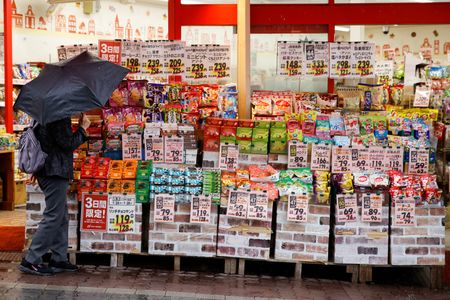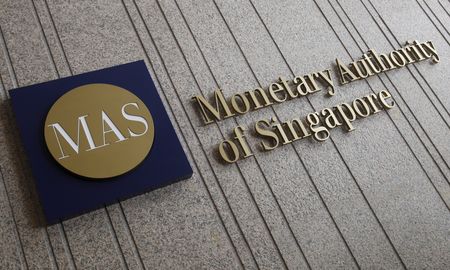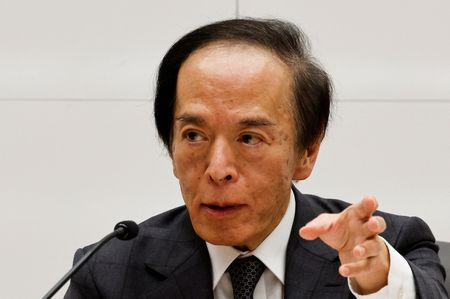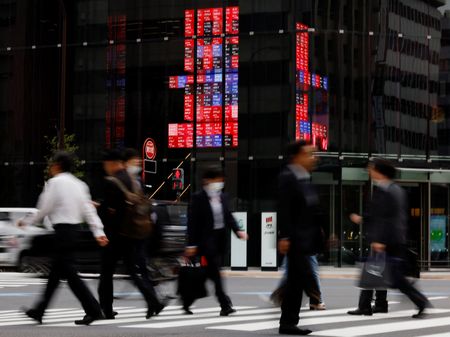By Leika Kihara
TOKYO (Reuters) -Japan’s wholesale prices rose more than expected in October as the cost of rice and other food remained stubbornly high, data showed on Thursday, keeping pressure on the central bank to resume interest-rate increases.
Analysts said wholesale inflation was likely to moderate in the coming months, but renewed yen weakness could push up the cost of imports and keep prices elevated.
The corporate goods price index, which measures the prices that companies charge each other for their goods and services, rose 2.7% in October from a year earlier, slowing from 2.8% in September but exceeding market forecasts for a 2.5% increase.
While yen-based import prices fell 1.5% in October from a year earlier, prices continued to rise for rice, other food products and non-ferrous metals, the data showed.
Yutaro Suzuki, an economist at Daiwa Securities, said he expected wholesale inflation to slow if Prime Minister Sanae Takaichi’s government goes ahead with a plan to lower utility bills in its stimulus package.
“But concern over Takaichi’s expansionary fiscal policy is pushing down the yen, which could boost import costs and keep upward pressure on wholesale inflation,” he said.
The wholesale price data is among factors the BOJ scrutinises as a leading indicator of consumer inflation, which is the central bank’s main gauge in setting monetary policy.
The BOJ exited a decade-long, massive stimulus programme last year and raised interest rates to 0.5% in January on the view Japan was on the cusp of sustainably achieving its 2% inflation target.
While consumer inflation has exceeded 2% for well over three years, Governor Kazuo Ueda has stressed the need to move cautiously in hiking rates further to ensure price rises are driven by solid domestic demand rather than raw material costs.
(Reporting by Leika Kihara; Editing by Sam Holmes and Thomas Derpinghaus)











